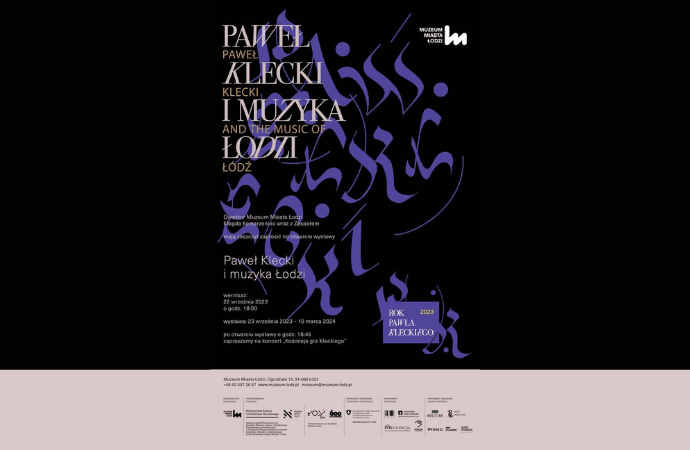Celebrating anniversaries often provides a great excuse to discover anew places, things, and people who for one reason or another became forgotten with the passage of time. This was certainly at least one of the reasons for the City Museum of Łódź to celebrate Paweł Klecki (1900-1973), a distinguished conductor and a fine composer, on the fiftieth anniversary of his death.
Already at the tender age of fifteen, Klecki joined the Philharmonic Orchestra as a violinist in his hometown of Łódź. He served in World War I, studied philosophy at Warsaw University and moved to Berlin in 1921 to continue his studies. His debut at the podium of the Berlin Philharmonic came in 1925, by which time Klecki’s compositions were being introduced by such acclaimed maestros as Toscanini and Furtwängler. After Hitler’s putsch, Klecki left Berlin in 1931 and settled for a few years in Milan, where he taught composition. He next moved to the Soviet Union in 1936 and survived the Holocaust, unlike his parents and sister who were its victims.
Returning to Italy in 1946, Klecki reopened Milan’s La Scala and became Swiss citizen a few years later. In 1954 he was appointed to lead the Liverpool Philharmonic and appeared in concerts with the Israel Philharmonic as well. Klecki career continued as a distinguished maestro after he became principal conductor of the Dallas Symphony Orchestra (1958-1961) and as music director of the Orchestre de la Suisse Romande (1967-1970). He died 1973 after collapsing during a rehearsal with the Liverpool Philharmonic and most of his compositions were rediscovered only after his death. Written mostly before the early 1940s, they include symphonic and chamber works, as well as solo and vocal music.
The other anniversary celebrated in Łódź is 600 years since the city’s founding, which also falls in 2023. Combining the two disparate dates, the City Museum of Łódź assembled an exhibit entitled “Paweł Klecki i muzyka Łodzi” [Paweł Klecki and the Music of Łódź], which opened on September 22. Curated by Dr. Wojciech Wendland and running through early March 2024, this exhibit will be accompanied by concerts and other artistic events scheduled in the Museum during the next six months.
[Source: press release]
The Polish Music Center is entirely donation-based, for everything from our operational budget to the growth of our vast library and rare archives. If you’ve found our website interesting and helpful, please visit our Donations Page. There you can donate directly to the PMC, knowing that a gift of any amount helps keep our website flourishing and our doors open. Thank you!
